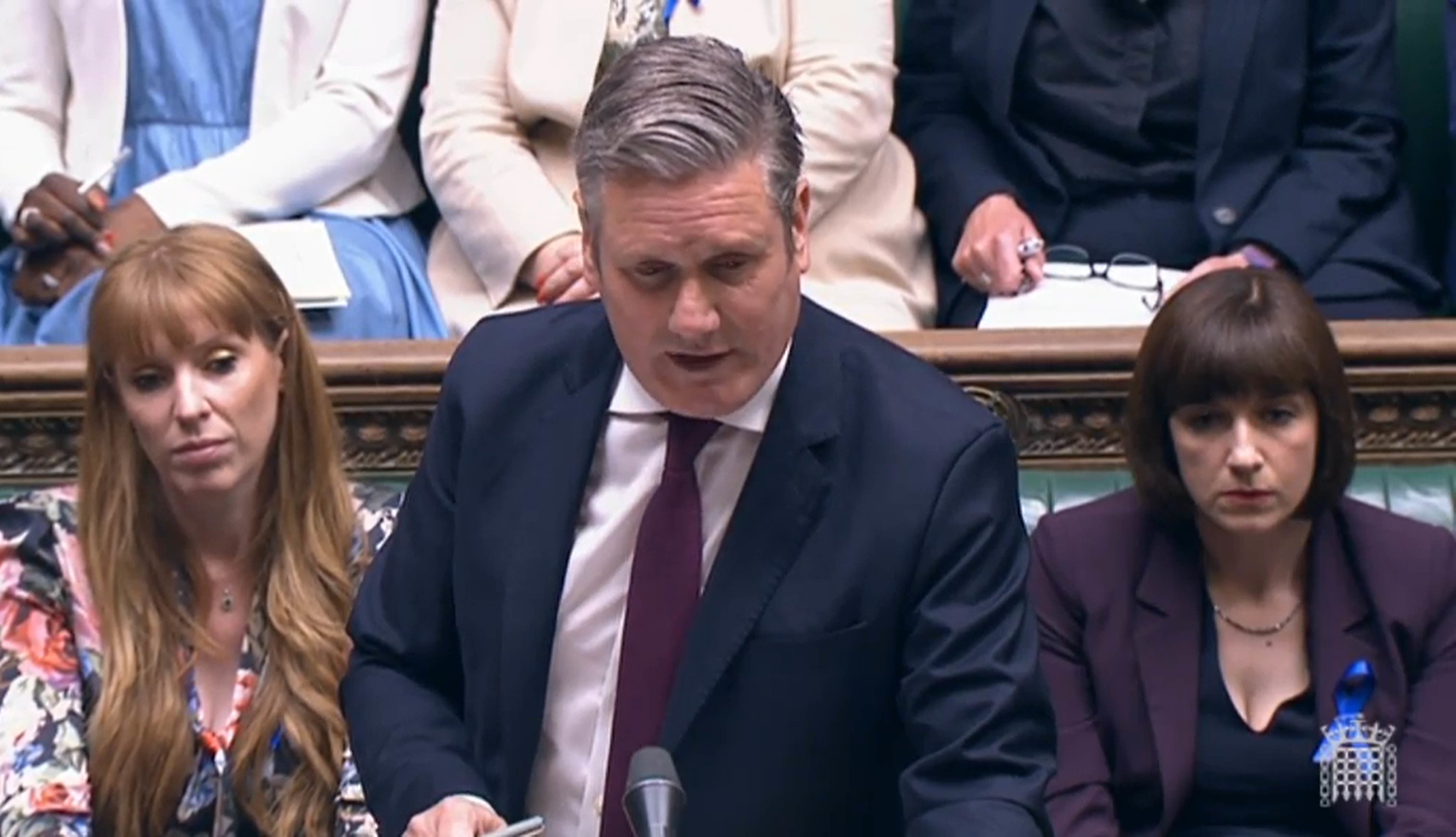Tables turned at PMQs: Boris Johnson floundered as Keir Starmer won the rhetorical battle
The Labour leader had no solutions, but he looked in charge at this week’s Prime Minister’s Questions, writes John Rentoul


We took our places for Leader of the Opposition’s Questions, expecting Boris Johnson to ask Keir Starmer six times to condemn the rail strikes. But because everyone expected the prime minister to do it, he was robbed of the element of surprise.
That advantage lay with Starmer instead, who started by praising the “plucky” Conservative candidate in tomorrow’s Wakefield by-election. It was a well-crafted question, pointing out that the candidate had suffered a vote of no confidence among local Conservatives, and drawing the parallel with Johnson’s loss of support on the benches behind him: “Does the prime minister hold any personal interest in seeing if the public will vote for a Tory that even his own side don’t think is up to it?”
Johnson brushed that aside, launching, as expected, into an attack on Starmer for not having the “gumption” to speak out against the rail strikes. But Starmer had an effective counter-attack in his second question, pointing out that Grant Shapps, the transport secretary on whose watch the strikes are taking place, had boasted in a TV interview at the weekend about his skill in predicting the number of Tory MPs who would vote against the prime minister in the confidence vote. (He had, in fact, disloyally over-estimated the size of the revolt, expecting 149 votes against rather than the 148 recorded.)
Johnson ignored that too, proclaiming “this is the government that loves the railways” and turning to the 25 Labour MPs who were on picket lines yesterday, with: “They are backing the strikers while we back the strivers.”
Starmer politely thanked Johnson for his advice, but said that if he needed it, for example about a £100,000-a-year job at the Foreign Office, he would ask for it. It was a deft way of raising the old story, which resurfaced this week, about Johnson when he was foreign secretary trying to get Carrie a job before their affair became public.
Starmer then did effective populism, saying the prime minister should “do his job, get round the table, and get the trains running”. Whereas the opinion polls suggest that the public is divided on Johnson’s question – supporting or opposing the strikes – a clear majority agree that the government is at fault. Starmer doesn’t have a solution, except the implication that the government should spend more of other people’s money. But “get round the table” is something everyone can happily nod along with, whereas taking sides in an industrial dispute is often a choice people would rather not make.
Johnson didn’t have a coherent response, saying that the government had already spent £16bn of taxpayers’ and future taxpayers’ money keeping the railways afloat during the pandemic. Then he was back to accusing Labour of backing the strikes because the party takes money from the trade unions.
To keep up to speed with all the latest opinions and comment, sign up to our free weekly Voices Dispatches newsletter by clicking here
Starmer repeated himself. “Can’t he hear the country screaming at him, ‘Get on with your job!’?” And then he asked a question for which Johnson seemed unprepared. A technical change to the law on non-executive directors’ pay, proposed by Steve Barclay, the prime minister’s chief of staff, and buried deep in the Financial Times, was exhumed to allow Starmer to do his impression of Harry Enfield asking the ultimate BBC Question Time question from the years after the financial crash: “The bankers, the bonuses, the Tories.”
The proposal is technical and doesn’t quite amount to a pay rise for bankers, as Starmer alleged, but Johnson appeared to know nothing about it, so Starmer happily asked it again and accused the prime minister of having “rolled over on bankers’ bonuses”.
Johnson launched into a litany of government achievements, including his absurd present-tense claim to be “building a nuclear reactor every year”, when one hasn’t been built since 1995. He ended by claiming that he wanted to cut the cost of transport for working people, while Labour wanted to put it up. Quite unexpectedly, that might even be true. But it was too late. Keir Starmer had won the moment in the chamber, and Johnson had floundered, looking lost and confused, as if things had not gone to plan.



Join our commenting forum
Join thought-provoking conversations, follow other Independent readers and see their replies
Comments